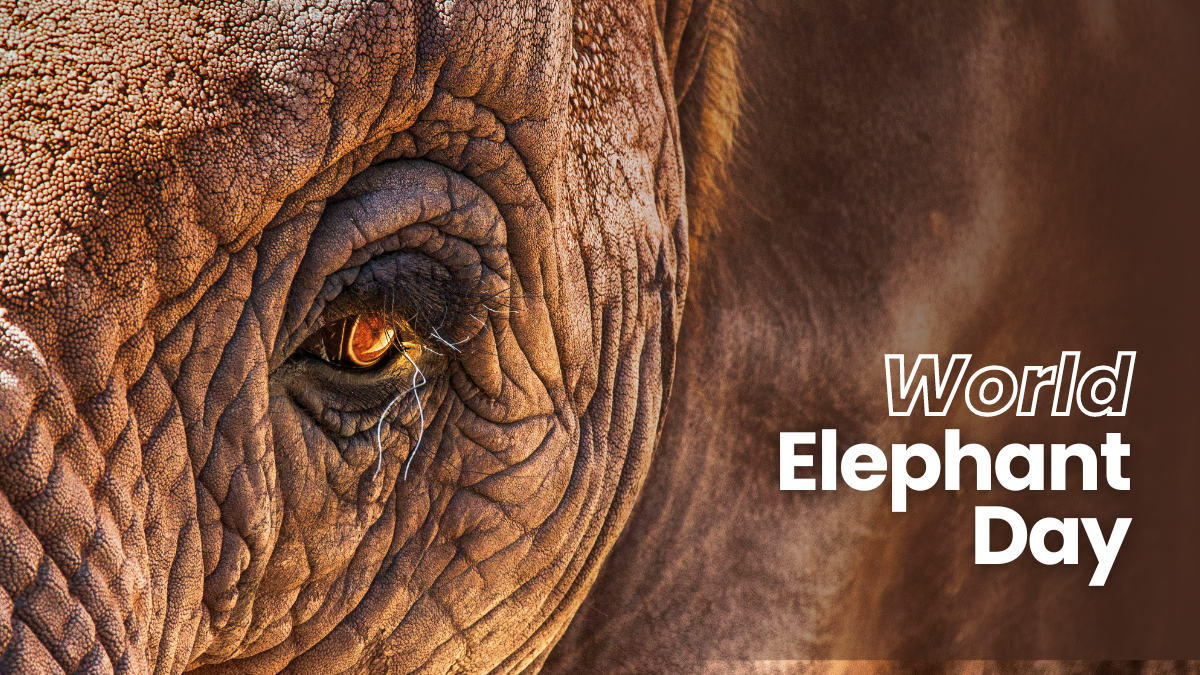Every year on August 12th, people around the globe observe World Elephant Day. This annual event aims to raise awareness about the challenges faced by the world’s largest land mammals. Elephants, often referred to as pachyderms, play a crucial role in our ecosystems and hold significant cultural importance in many societies.
The Origin of “Pachyderm”
The term “pachyderm” was first coined by French naturalist Georges Cuvier in the 1700s. It describes hoofed animals with exceptionally thick skin. While elephants are the most well-known pachyderms, this group also includes:
- Hippopotamuses
- Rhinoceroses
- Horses
- Pigs
Elephants in the Wild
Geographic Distribution
Elephants primarily inhabit two regions in the wild:
- Africa: Home to the African bush elephant and African forest elephant
- Asia: Habitat of the Asian elephant
Threats to Elephant Populations
Elephant populations face several significant threats:
- Poaching: Illegal hunting of elephants for their ivory tusks remains a major concern.
- Human-Elephant Conflict: As human populations expand, they increasingly encroach on traditional elephant habitats, leading to conflicts.
- Habitat Loss: Deforestation and land conversion reduce the available space for elephants to roam and find food.
Asian Elephants in India
India is home to approximately 55% of the world’s Asian elephant population, making it a crucial country for elephant conservation efforts.
The History of World Elephant Day
Founders
World Elephant Day was established by two Canadian filmmakers:
- Patricia Sims
- Michael Clark
They collaborated with the Elephant Reintroduction Foundation in Thailand to launch this global initiative.
First Celebration
The inaugural World Elephant Day took place on August 12, 2012.
World Elephant Society
Patricia Sims continues her dedication to elephant conservation through the World Elephant Society, an organization she founded to promote elephant protection efforts worldwide.
World Elephant Day 2024
Theme
The World Elephant Society, based in California, USA, has announced the theme for World Elephant Day 2024:
“Personifying prehistoric beauty, theological relevance, and environmental importance”
This theme highlights the multifaceted significance of elephants, emphasizing their:
- Ancient lineage and evolutionary importance
- Role in various religious and cultural traditions
- Critical function in maintaining ecological balance
Elephants in India: Conservation Status and Efforts
National Heritage Status
In 2010, the Government of India declared the elephant as the country’s National Heritage Animal. This decision was based on recommendations from the Elephant Task Force.
The Elephant Task Force and Gajah Report
- Chair: Mahesh Rangarajan
- Key Recommendation: Establishment of the National Elephant Conservation Authority, modeled after the National Tiger Conservation Authority
- Status: The government has yet to fully implement the report’s recommendations
Legal Protections for Elephants in India
- Indian Wildlife (Protection) Act 1972: Elephants are listed in Schedule 1, granting them the highest level of protection under Indian law.
- Convention on International Trade in Endangered Species of Wild Fauna and Flora (CITES): Elephants are included in Appendix I, which prohibits international trade in specimens of these species except for non-commercial purposes.
- International Union for Conservation of Nature (IUCN): Elephants are classified as an endangered species on the IUCN Red List.
Project Elephant
Launched in 1992, Project Elephant is a centrally sponsored initiative aimed at protecting elephants, their habitats, and corridors. Key features include:
- Creation of elephant reserves
- Mitigation of human-elephant conflict
- Welfare of captive elephants
Elephant Population in India
According to the 2017 census, India was home to 27,312 elephants, the largest population in Asia.
Elephant Reserves in India
As of 2024, India has established 33 elephant reserves across 14 states. Notable facts include:
- First Elephant Reserve: Singhbhum Elephant Reserve, Jharkhand (notified on September 26, 2001)
- Most Recent Addition: Terai Elephant Reserve, Uttar Pradesh (notified in 2022)
- States with Most Reserves: Odisha and Tamil Nadu (5 each)
States with Elephant Reserves
- Assam
- Arunachal Pradesh
- Nagaland
- Meghalaya
- West Bengal
- Odisha
- Uttarakhand
- Uttar Pradesh
- Jharkhand
- Chhattisgarh
- Karnataka
- Kerala
- Tamil Nadu
- Andhra Pradesh




 Important Days in March 2026: Check the ...
Important Days in March 2026: Check the ...
 World Wildlife Day 2026: Why Medicinal P...
World Wildlife Day 2026: Why Medicinal P...
 National Science Day 2026: Honouring the...
National Science Day 2026: Honouring the...








